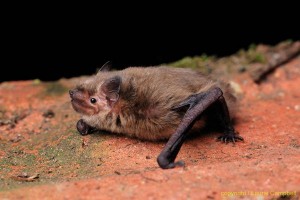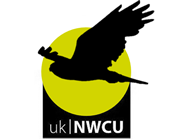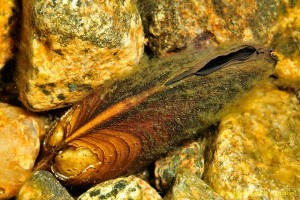Breaking
Bat Conservation Trust launch Halloween video to celebrate bats 🦇
Operation Badger re-launch for National Badger Day!
Craig Fellowes awarded MBE for services to wildlife
Operation EASTER ~ 27 years of stopping egg thieves
Man who abseiled down cliff to take peregrine falcon eggs jailed
Newport company fined for the demolition of Bat Roost
Cheshire man sentenced after admitting animal cruelty offences
2,114 seizures of endangered animals and timber in major international law enforcement operation
Natural England prosecutes developer for breaching Bat Mitigation Licence
Vale of Glamorgan man prosecuted for destroying valuable wildlife habitat
Wildlife detectives take part in new Forensics Training programme
PSNI investigate death of two white-tailed eagles
PSNI launch Operation SUBRISION to deter and detect rural and wildlife crime
Lewisham man convicted for illegally exporting ivory
Operation EASTER launched for 2023 - stopping egg thieves and egg collectors
Monmouthshire company fined for damaging an important Great Crested Newt habitat
Two Lincolnshire men sentenced under new hare coursing legislation
Hoard of suspected poached deer skulls and fox tails uncovered after drugs raid in Nottinghamshire
Priority Delivery Groups
The National Intelligence Model (NIM) takes an intelligence led, problem solving approach to crime and disorder. It promotes partnership working and uses the management of information and intelligence to operate at all levels of policing.
On behalf of the United Kingdom (UK) and devolved UK Governments the National Wildlife Crime Unit (NWCU), through a high level group known as the UK Tasking & Coordinating Group (UK TCG), produces intelligence products which include a UK Strategic Assessment on wildlife crime and from which wildlife crime priorities are agreed.
The UK TCG can review and amend the priorities at any time, but they are formally reviewed every second year (2011, 2013, etc). Each priority is taken forward via a Priority Delivery Group (PDG). The PDG has a named plan owner, plus a lead for each of the three strands of prevention, intelligence and enforcement. Each group concentrates on the priorities that have been set, however they can also consider emerging trends. Any changes to the priorities must be done through the UK TCG.
The purpose of a UK Priority Delivery Group is to progress the priority in relation to prevention, intelligence and enforcement, including:
- Setting of SMART objectives (specific, measurable, achievable, realistic and timely)
- Awareness raising (across law enforcement agencies, partners, stakeholder communities and the public)
- Raising the profile via media exposure
- Increase of information sharing
- Coordination of enforcement activity
Feed into UK TCG and PAW
Each PDG updates the UK Tasking and Coordination Group (TCG) 2x year via a plan owner document. This allows the UK TCG to oversee the activities of the PDG and decide if the PDG is progressing the priority.
Current Priority Delivery Groups [click on a title for more information about each group]
 Badger Crime
Badger Crime
Plan Owner: DC Aaron Flint (Lincolnshire Police)
Objective: Improve and increase the recording of incidents, crimes and intelligence for Badger Persecution. Improve the investigation process and increase awareness of Badger Persecution across the UK
 Bat Crime
Bat Crime
Plan Owner: Mark Goulding (BCT) (temp chair)
Objective: To reduce bat crime by: ~ working with key stakeholders to raise awareness of responsibilities and criminal offences against bats, promoting a preventative approach and improving the submission of intelligence and standards of investigation relating to bats across the UK
 CITES
CITES
Current priorities of European Eel; Illegal Trade in Raptors; Ivory; Reptiles; Rhino Horn, Stony Coral, Timber and Traditional Medicines, Herbal & Health Supplements
Plan Owner: Liz Down (Border Force)
Objective: Increase the number of disruption activities and detections of illegal trade in CITES priority species by: Increasing the amount of targeted compliance activity, increasing the number of intelligence submissions and intelligence products produced, improve the quality of analytical assessments and complete in agreed time-scales, and increase the number of investigations and enforcement outcomes
 Cyber Enabled Wildlife Crime
Cyber Enabled Wildlife Crime
Plan Owner: DS Mick Walker (Merseyside Police)
Objective: To facilitate collaboration between enforcement agencies, government departments, non-government organisations and civil society organisations to deliver a joined up, cohesive, pro-active approach to identifying and tackling cyber enabled wildlife crime.
Freshwater Pearl Mussels
Plan Owner: Angus Tree (Nature Scot)
Objective: Raise awareness of criminality affecting freshwater pearl mussels in order to facilitate intelligence and incident reporting, leading to increased prevention and enforcement action

Poaching (England & Wales)
(Deer Poaching/Coursing, Fish Poaching and Hare Coursing)
Plan Owner: PC Alison Ashbolt (Thames Valley Police)
Objective: To increase the level of awareness of poaching and hare coursing as serious wildlife crimes and build better trust and relationships between the law enforcement agencies and local communities, both leading to increased prevention activity, intelligence flows and enforcement success.
Poaching (Scotland)
(Deer Poaching/Coursing, Fish Poaching and Hare Coursing)
Plan Owner: John Bruce
Objective: To build a greater level of public awareness of poaching and coursing as serious wildlife crime, to continue to build working relations, communications and information share between all agencies and organisations and rural communities in order to increase prevention activity and enforcement.
Bird of Prey Crime (England & Wales)
(including poisoning, egg theft, chick theft, taking from the wild and nest disturbance/ destruction and to concentrate on golden eagle, goshawk, hen harrier, peregrine, red kite and white-tailed eagle)
Plan Owner: Ch Insp Kevin Kelly (NWCU)
Objective: Raise community trust and awareness to facilitate intelligence and incident reporting, leading to increased prevention and enforcement activity relating to Bird of Prey Crime
Bird of Prey Crime (Scotland)
(including poisoning, egg theft, chick theft, taking from the wild and nest disturbance/ destruction and to concentrate on golden eagle, goshawk, hen harrier, peregrine, red kite and white-tailed eagle)
Plan Owner: Det Ch Supt (Police Scotland)
Objective: Raise community trust and awareness to facilitate intelligence and incident reporting, leading to increased prevention and enforcement activity relating to Bird of Prey Crime




